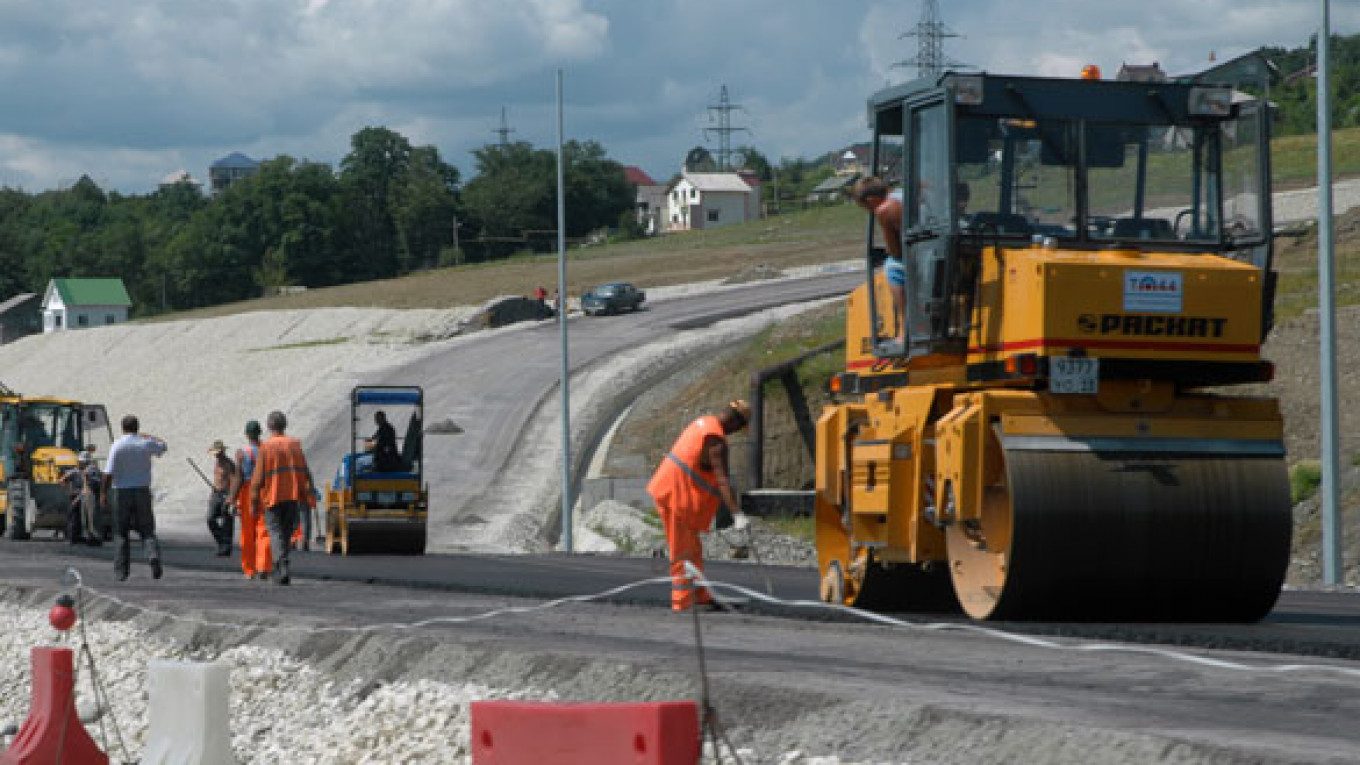SOCHI — The market for the construction of roads, bridges and tunnels may grow at least 4 percent to 730 billion rubles ($23.5 billion) this year, the head of a builders' association said Thursday.
Sergei Mozalyov, executive director of the Russian Bridge Builders Association, based his estimate on rising spending in the sector by regional governments. The market expanded 5 percent to 701 billion rubles last year, he said.
Spending to build roads and bridges for the 2014 Sochi Olympics has already peaked, he said, as the projects are slated to be operational in 2012.
Despite the impressive size of Russia's road construction market, it has no foreign contractors because of the high entry barriers, Mozalyov said.
"One has to obtain registration and permits from so many organizations that it's a bit of a scare for them," he said in an interview with The Moscow Times.
For example, a contractor has to certify its welding expertise with the National Welding Control Association, including equipment, technology and every welder by name, Mozalyov said.
He estimated that Chinese construction companies would be the first foreigners to try to enter the market. They may gain a competitive advantage if the Russian government allows them to bring a cheap work force from China, he said.
Foreign road construction companies now only provide their expertise and investment in joint concessions with Russian companies, Mozalyov said. France's Vinci is a partner in one such plan to build a road from Moscow to St. Petersburg that was supposed to run through the Khimki forest. President Dmitry Medvedev recently suspended the work following a public outcry over possible environmental damage.
Participating in concessions doesn't require certification, Mozalyov said. Foreign partners in concessions chip in "money and brains to manage the process and cut costs" by proposing cheaper solutions, he said.
Russia's main nonconcession road construction projects include the construction of the M-4, or Don highway, from Moscow to Novorossiisk, as well as the Chita-Khabarovsk highway that Prime Minister Vladimir Putin inspected recently. Of the total spending on roads, 40 percent is for maintenance, Mozalyov told reporters.
A Message from The Moscow Times:
Dear readers,
We are facing unprecedented challenges. Russia's Prosecutor General's Office has designated The Moscow Times as an "undesirable" organization, criminalizing our work and putting our staff at risk of prosecution. This follows our earlier unjust labeling as a "foreign agent."
These actions are direct attempts to silence independent journalism in Russia. The authorities claim our work "discredits the decisions of the Russian leadership." We see things differently: we strive to provide accurate, unbiased reporting on Russia.
We, the journalists of The Moscow Times, refuse to be silenced. But to continue our work, we need your help.
Your support, no matter how small, makes a world of difference. If you can, please support us monthly starting from just $2. It's quick to set up, and every contribution makes a significant impact.
By supporting The Moscow Times, you're defending open, independent journalism in the face of repression. Thank you for standing with us.
Remind me later.






